Finding the ideal sponsor for your recovery can be challenging when initiating treatment. A sponsor plays a major role in an individual’s recovery and is expected to support individuals through their 12-Step process. A good sponsor is someone who helps guide you through a 12-Step program without judgment and makes themselves available when you need them. Building a relationship with a sponsor requires constant communication and trust.
Addiction is a brain disease that requires professional help and continued support. There are several methods to combat addiction, such as treatment, therapy, and a 12-Step program. Although there are multiple effective treatment methods, dealing with the issue from multiple angles at a time can be most effective as addiction is a challenging chronic disease.
Building a relationship with a sponsor can help facilitate entry to recovery by helping you prevent relapse and offering you the support you need. However, other forms of professional treatment are also needed.
The Importance of a Sponsor
According to Drug and Alcohol Dependence, research shows that 12-Step program sponsors increase positive substance use outcomes. However, to produce good outcomes, individuals should choose their sponsors wisely. A good sponsor provides accountability, empathy, and support.
A study conducted by Alcohol Treat Quarterly indicated that the participating clients’ top reasons for attending a 12-Step program, such as Alcoholics Anonymous (AA), were not only to promote recovery and sobriety but to find support and acceptance.
The habits individuals struggling with addiction create can lead them to damage relationships or surround themselves with bad influences who play a role in their addiction habits. This is why forming a relationship with a sponsor who has first-hand experience with addiction is ideal for people in recovery.
Sponsors provide initiating members of a 12-Step program with a guide toward recovery to prevent relapse while providing support.
Finding a Sponsor
The first step to finding a sponsor is joining a 12-Step program and attending meetings. During meetings, people can speak up and share their stories and announce their need for a sponsor. Individuals can also make connections in the program and hang out after meetings to make known their need for a sponsor. Experienced sponsors usually offer their services and provide their contact information during meetings.
When initiating a 12-Step program, it is important to choose a sponsor who has the time to be available when needed. A sponsor who already has multiple sponsees is probably not a great choice for an individual initiating the program.
Once a sponsor is found, it is important to share primary contact information and use it when needed. Keeping constant communication is essential to form a solid relationship with a sponsor.
While a sponsor’s duty is to hold others accountable for their actions and sobriety, the effectiveness of a sponsor’s help is dependent on the sponsee’s honesty. Twelve-Step programs require the acceptance of an individual’s loss of control over their addiction and their need for help.
Preventing Relapse With a Sponsor
According to a study conducted by Social Work in Public Health, patients who received intensive referrals were more likely to attend and participate in a 12-Step program and showed a more significant improvement in their recovery than patients with a standard referral. While there are many misconceptions about the effectiveness of a 12-Step program, anyone can benefit from the program with the right mindset and support.
A common misconception about a 12-Step program is that they are inherently religious. Although 12-Step programs encourage faith in a higher power, they do not force any specific religion on anyone. These sorts of misconceptions can be explained by a sponsor. Therefore finding a trusted sponsor to guide individuals through the process is essential to understanding the program better.
Often times feeling lonely and insignificant can cause individuals to turn to substances for temporary relief. However, the Twelve Steps teach people to turn to their loved ones, friends, or sponsors instead.
Treatment and Continuing Support
Although a 12-Step program and sponsors are beneficial to recovery, in severe cases, treatment in a professional setting is a priority. Treatment centers, such as Spero Recovery Center, offer individuals struggling with addiction with affordable treatment options and support. They encourage involvement in a 12-Step program and allow individuals to meet with a sponsor.
Additionally, Spero offers treatment without consequences. This means that individuals are not punished if their treatment plan doesn’t work out. Instead, Spero takes each client’s unique situation into consideration and encourages participation in their own treatment plan.
After treatment, Spero offers continuing support by helping individuals formulate an aftercare plan for long-term recovery. This helps individuals learn to navigate through life when they initially go back out into the real world. Clients also have the option to enter their sober living homes and we encourage alumni to come back to the facility and volunteer.
A relationship with a sponsor is a unique friendship that encourages sobriety and offers support. Addiction is a brain disease that requires professional support and continued support after treatment. While finding a sponsor can be initially intimidating, finding a sponsor during a 12-Step meeting is ideal. Twelve-Step meetings involve support from multiple individuals who have addiction in common. They can provide individuals with the first-hand knowledge that initiating members need. Individuals involved in a 12-Step program following treatment have a higher chance of maintaining long-term recovery. While a 12-Step program can be beneficial, professional treatment should come first. There are several treatment options and 12-Step programs widely available. For more information, contact Spero Recovery Center at (303) 351-7888.













